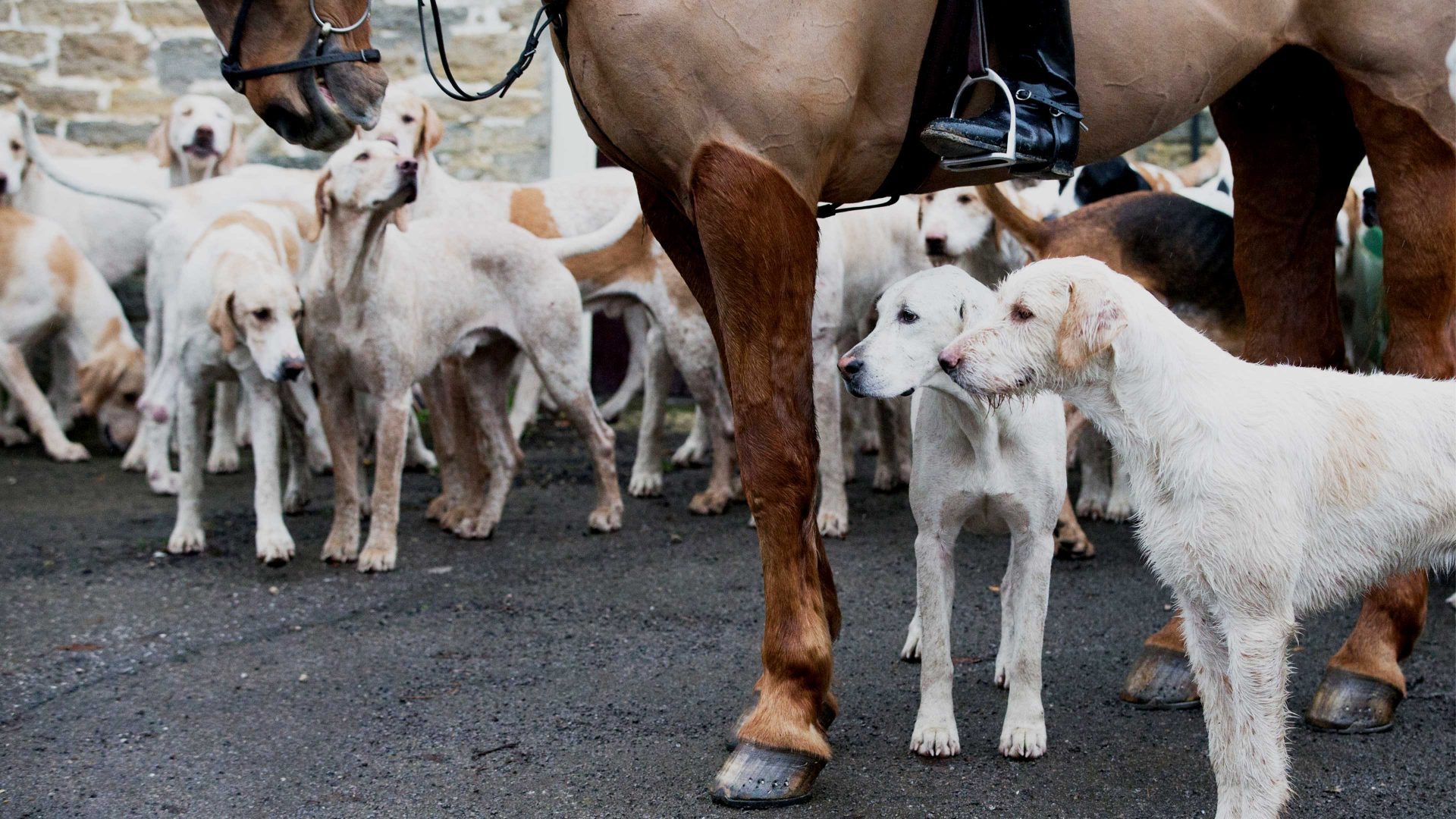If you’re the kind of person who enjoys going out on horseback to chase a terrified fox across the countryside, then you’ll realise that your cruel pastime has been banned for quite a long time. Traditional hunting with hounds has been illegal in England and Wales since 2004, and in Scotland since 2002. But you can still, for now, organise a trail hunt, a supposedly cruelty-free alternative. Hounds follow a pre-laid animal-based scent trail across farmland and through woods, though precisely where it goes is kept secret from the hunt. And then they all go and have a drink.
That’s how it works in principle, but often this is just a smokescreen behind which traditional foxhunting is still taking place. The hounds can’t tell the difference between an artificial and an actual fox scent, and so end up pursuing a live animal. Even when this isn’t a cynical deception, make-believe foxhunting then morphs into the real thing, and the hunters can always claim that it was those poor confused dogs that led them astray.
Drag hunting is a bit different. In drag hunting a trail of aniseed is laid away from areas where foxes are known to live. The route is pre-determined and so the dogs can be stopped if they pick up the scent of a live animal. Drag hunting carries fewer risks of animal cruelty than trail hunting.
The Labour Party made a pre-election pledge to ban trail hunting, along with any importation of hunting trophies. That hasn’t been imposed yet, but it seems like a very good idea on animal welfare grounds, and likely to go through. There are far more humane and efficient ways to keep fox numbers down, and mostly that’s not what traditional foxhunting is about.
But some campaigners who practise clean boot hunting are now worried their sport will be outlawed too. Clean boot hunters set bloodhounds to hunt humans who take on the role of the quarry. The humans want to be pursued and are willing participants. Clean boot hunters have a point. Theirs is a very different activity, since the prey gives consent. Unless this turns out to be a cover for a very British version of Squid Game, they are unlikely to be traumatised by the pursuit or killed at the end of the chase.
The late Roger Scruton was one of very few philosophers to try to mount a case for foxhunting. He only came across the activity in his early 40s and felt a visceral attraction to it that he never lost:
“The energy that swept me away was neither human nor canine nor equine, but a peculiar synthesis of the three: a tribute to centuries of mutual dependence, revived for this moment in ritual form.”
Despite being a self-confessed urban intellectual, he was hooked, and later rode regularly with his local hunt. His defence stressed the rituals, the ceremonial coming together of people from different sections of society united in the common goal of pursuing vermin.
He claimed that hunting merited the name “sport” in the sense that it was a serious activity, part of a way of life, rather than a more trivial “game” or “hobby”.
Another of his hard-to-stomach claims was that it involved respect for the animals. His argument for this turned on what he called the “etiquette” of hunting, a set of rules that were enforced by tradition, that meant that, for instance, they would not pursue or kill a pregnant vixen.
This looks like wishful thinking motivated by a romanticised view of country life. There are many abominable British traditions that have been banned: slavery, dog fighting, and badger baiting to name three – though, very sadly, all three still take place under cover. If trail hunting is a screen for actual hunting, then it too should be outlawed. If they hunted a cat or a dog in the same way, there would be justified outrage.
Immanuel Kant argued that we only have indirect duties to animals. For him the reason why animal cruelty was wrong was not to do with victims’ suffering, but because those who torture animals become cruel towards humans too, a correlation subsequently borne out by research in forensic psychology. A very common starting point in animal ethics, however, is that the suffering of sentient beings should be avoided or reduced wherever possible. The oft-quoted words of Jeremy Bentham still ring true:
“The question is not, Can they reason? nor, Can they talk? but, Can they suffer?”



